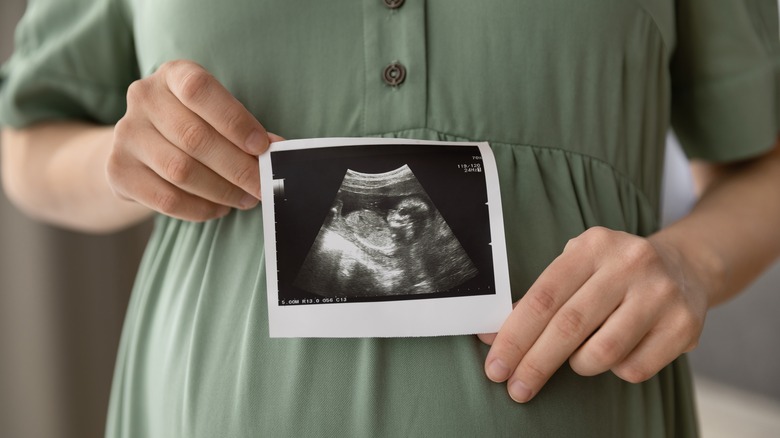Study Finds Whether Intermittent Fasting Can Affect A Woman's Fertility
Too many people of a reproductive age understand the struggle of trying to get pregnant. According to the CDC, about one out of five women suffer from infertility, meaning that they cannot conceive after one year of trying. There are a multitude of things that can cause infertility in a woman or person with a female reproductive system. Among them, the CDC states, are weight issues such as being extremely underweight or overweight, or having extreme weight loss or gain.
If you're prone to extreme weight gain, you've probably tried numerous diets or tried to form new eating habits. One diet that has gained popularity in recent years is intermittent fasting. While other diets focus on what you eat, intermittent fasting is about reducing your food intake to smaller windows of time throughout the day, per Johns Hopkins Medicine. For the rest of the day and/or night, you refrain from eating.
While the benefits of intermittent fasting are still being debated, a new study explores whether or not it affects fertility.
Can intermittent fasting affect fertility?
In the journal study published by The Obesity Society, researchers found that although the hormones changed within their experimental group, there were no changes with their fertility levels.
The study, which took place over eight weeks, was conducted with women with obesity. The women were divided by the status of being premenopausal and postmenopausal. Then, they were placed an on intermittent fasting diet in which they ate within a 4- to 6-hour window, with their eating habits observed by the researchers. After the eight weeks, researchers found that although the weight of both groups of women had decreased, their testosterone, androstenedione, and sex hormone binding globulin levels did not change. SHBG is a particularly important protein, as it carries reproductive hormones through your blood.
Despite those levels not being impacted, the intermittent fasting diet did drop the levels of DHEA in the women by around 14%. While DHEA is a naturally-occurring hormone that aids in the production of estrogen, testosterone, and other hormones, some women take it as a supplement to help them get pregnant faster (via Info Med News).
Although the women's fertility levels were not impacted by this study, check in with your doctor before you make any changes to your eating habits if you're trying to get pregnant.

